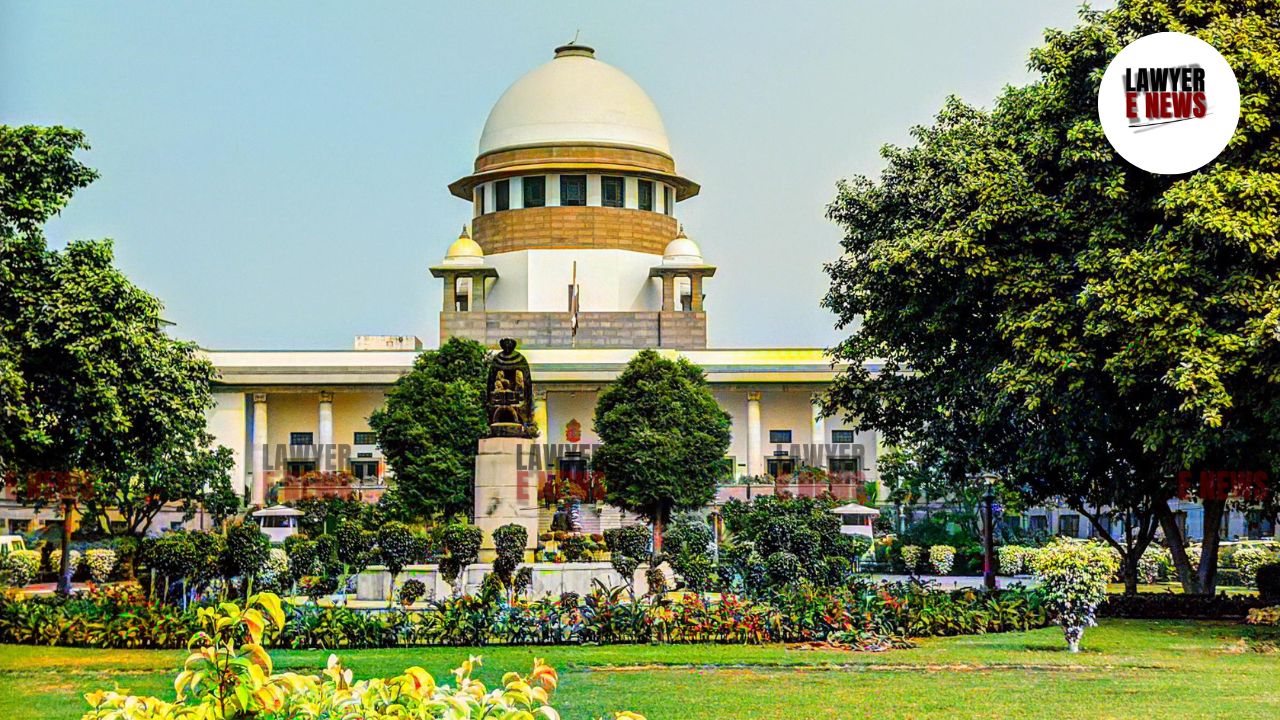-
by Admin
16 February 2026 1:47 PM



Summoning Cannot Be Ordered by Overlooking Supplementary Investigation Report — Supreme Court of India emphasized that courts cannot mechanically summon additional accused under Section 319 CrPC without evaluating all available evidence, including supplementary investigation reports. The bench comprising Justice Surya Kant and Justice Nongmeikapam Kotiswar Singh held, “if there is a lawfully collected ‘material’ or ‘evidence’ brought on record after filing of an application under Section 319 Cr.P.C., its effect and impact ought to be taken into account for the purpose of formation of the opinion.”
The Court allowed the appeal partly by setting aside the summoning order passed by the Trial Court and affirmed by the Allahabad High Court, remanding the matter back to the Trial Court for a fresh decision.
The case arose from an incident dated 11th March 2014, where it was alleged that Rama Singh, along with her husband Raju Singh and other family members, including her father-in-law Raghvendra Singh, opened indiscriminate firing on the complainant party at 'Basani' farm area, leading to the death of one Bharat Kumar Tiwari and injuries to Chainu Nai. The FIR accused the appellant of direct participation in the firing incident.
Initially, after investigation, a chargesheet was filed only against Ram Singh @ Ramu Singh under Sections 302 and 307 IPC, while the appellant, her husband, and father-in-law were exonerated by the Investigating Officer. The IO concluded that their implication was false and found no evidence of their presence at the spot. This conclusion was reaffirmed through a supplementary report dated 20.09.2019, which categorically stated, “Rama Singh and Raghavendra Singh have not been found involved in the above-mentioned incident in any way... their presence has not been found at the spot.”
Despite this, during the course of trial, the complainant moved an application under Section 319 CrPC seeking summoning of the appellant and her husband based on the testimonies of three prosecution witnesses.
The core question before the Supreme Court was: Whether the Trial Court and High Court erred in summoning the appellant under Section 319 CrPC without considering the supplementary investigation report and other post-investigation material on record?
The Supreme Court noted that Section 319 CrPC confers an extraordinary and discretionary power and cautioned against its routine or mechanical application. The Court held that: “Power under Section 319 CrPC is not to be exercised routinely and the existence of more than a prima facie case is sine qua non to summon an additional accused.”
The Court heavily relied on the Constitution Bench judgment in Hardeep Singh v. State of Punjab, (2014) 3 SCC 92, wherein it was held that: “The Trial Court must evaluate whether there is stronger evidence than mere probability before summoning an additional accused under Section 319.”
The Court also cited Juhru v. Karim, (2023) 5 SCC 406, reiterating that mere mention of an individual’s name in the testimony of some witnesses is insufficient unless it satisfies the stringent test laid down by law.
❝ Supplementary Investigation Report Cannot Be Ignored ❞
The Court faulted the Trial Court for completely overlooking the supplementary report dated 20.09.2019, which had exonerated the appellant. The Bench held: “It is obligatory upon the Trial Court to consider the material contained in such report along with the conclusions that may have been drawn by the Investigating Officer.”
Further, the Court observed: “All that we would like to emphasize is that if there is a lawfully collected ‘material’ or ‘evidence’ brought on record after filing of an application under Section 319 of Cr.P.C. and before the Court forms an opinion, such material cannot be overlooked.”
The Court held that since the Trial Court and the High Court had proceeded without evaluating the full material, their orders could not be sustained.
The complainant objected that since the appellant’s husband had accepted the summoning without challenging it before the Supreme Court, the appellant could not seek relief. The Court rejected this argument, noting: “Firstly, the husband of the appellant was found to be absconding, which was taken as a strong circumstance inferring his implication. Secondly, the supplementary report categorically found that Rama Singh and her father-in-law were not present at the spot. There is no such categorical finding regarding the husband.”
Hence, the Court found that the appellant's case stood on a different footing from her husband’s.
The Supreme Court set aside the summoning order with liberty to the Trial Court to reconsider the application under Section 319 CrPC in light of the entire material, including the supplementary investigation report.
“The Trial Court is directed to decide the application afresh within two months. The parties shall be at liberty to raise their respective contentions.”
Importantly, the Court added: “This order shall not give a fresh cause of action to the appellant’s husband to challenge his summoning under Section 319 CrPC.”
Expressing concern over the delay in trial, the Bench remarked: “More than 10 years have passed, however, the trial is yet to reach an effective stage. It is well known that in the event of acceptance of an application under Section 319 Cr.P.C., the trial has to recommence once again.”
The judgment reinforces the principle that courts must exercise utmost caution while invoking Section 319 CrPC. The Court has reiterated that no accused can be summoned unless the evidence goes beyond mere suspicion and is strong enough to justify subjecting them to criminal trial.
Date of Decision:18th March 2025
